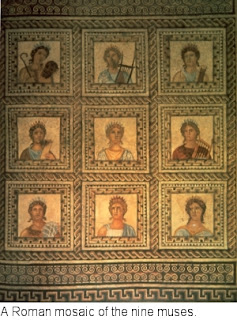The second paragraph will touch the writer’s soul.
There are those who deny with enthusiasm the existence of a God and are happy in a hobby which they call the Mistakes of Moses. I have not studied their labours in detail, but it seems that the chief mistake of Moses was that he neglected to write the Pentateuch. The lesser errors, apparently, were not made by Moses, but by another person equally unknown. These controversialists cover the very widest field, and their attacks upon Scripture are varied to the point of wildness. They range from the proposition that the unexpurgated Bible is almost as unfit for an American girls’ school as is an unexpurgated Shakespeare; they descend to the proposition that kissing the Book is almost as hygienically dangerous as kissing the babies of the poor. A superficial critic might well imagine that there was not one single sentence left of the Hebrew or Christian Scriptures which this school had not marked with some ingenious and uneducated comment. But there is one passage at least upon which they have never pounced, at least to my knowledge; and in pointing it out to them I feel that I am, or ought to be, providing material for quite a multitude of Hyde Park orations. I mean that singular arrangement in the mystical account of the Creation by which light is created first and all the luminous bodies afterwards. One could not imagine a process more open to the elephantine logic of the Biblesmasher than this: that the sun should be created after the sunlight. The conception that lies at the back of the phrase is indeed profoundly antagonistic to much of the modern point of view. To many modern people it would sound like saying that foliage existed before the first leaf; it would sound like saying that childhood existed before a baby was born. The idea is, as I have said, alien to most modern thought, and like many other ideas which are alien to most modern thought, it is a very subtle and a very sound idea. Whatever be the meaning of the passage in the actual primeval poem, there is a very real metaphysical meaning in the idea that light existed before the sun and stars. It is not barbaric; it is rather Platonic. The idea existed before any of the machinery which made manifest the idea. Justice existed when there was no need of judges, and mercy existed before any man was oppressed.
However this may be in the matter of religion and philosophy, it can be said with little exaggeration that this truth is the very key of literature. The whole difference between construction and creation is exactly this: that a thing constructed can only be loved after it is constructed; but a thing created is loved before it exists, as the mother can love the unborn child. In creative art the essence of a book exists before the book or before even the details or main features of the book; the author enjoys it and lives in it with a kind of prophetic rapture. He wishes to write a comic story before he has thought of a single comic incident. He desires to write a sad story before he has thought of anything sad. He knows the atmosphere before he knows anything. There is a low priggish maxim sometimes uttered by men so frivolous as to take humour seriously – a maxim that a man should not laugh at his own jokes. But the great artist not only laughs at his own jokes; he laughs at his own jokes before he has made them. In the case of a man really humorous we can see humour in his eye before he has thought of any amusing words at all. So the creative writer laughs at his comedy before he creates it, and he has tears for his tragedy before he knows what it is. When the symbols and the fulfilling facts do come to him, they come generally in a manner very fragmentary and inverted, mostly in irrational glimpses of crisis or consummation. The last page comes before the first; before his romance has begun, he knows that it has ended well. He sees the wedding before the wooing; he sees the death before the duel. But most of all he sees the colour and character of the whole story prior to any possible events in it. This is the real argument for art and style, only that the artists and the stylists have not the sense to use it. In one very real sense style is far more important than either character or narrative. For a man knows what style of book he wants to write when he knows nothing else about it.
Pickwick is in Dickens’s career the mere mass of light before the creation of sun or moon. It is the splendid, shapeless substance of which all his stars were ultimately made. You might split up Pickwick into innumerable novels as you could split up that primeval light into innumerable solar systems. The Pickwick Papers constitute first and foremost a kind of wild promise, a pre-natal vision of all the children of Dickens. He had not yet settled down into the plain, professional habit of picking out a plot and characters, of attending to one thing at a time, of writing a separate, sensible novel and sending it off to his publishers. He is still in the youthful whirl of the kind of world that he would like to create. He has not yet really settled what story he will write, but only what sort of story he will write. He tries to tell ten stories at once; he pours into the pot all the chaotic fancies and crude experiences of his boyhood; he sticks in irrelevant short stories shamelessly, as into a scrap-book; he adopts designs and abandons them, begins episodes and leaves them unfinished; but from the first page to the last there is a nameless and elemental ecstasy – that of the man who is doing the kind of thing that he can do. Dickens, like every other honest and effective writer, came at last to some degree of care and self-restraint. He learned how to make his dramatis personae assist his drama; he learned how to write stories which were full of rambling and perversity, but which were stories. But before he wrote a single real story, he had a kind of vision. It was a vision of the Dickens world – a maze of white roads, a map full of fantastic towns, thundering coaches, clamorous marketplaces, uproarious inns, strange and swaggering figures. That vision was Pickwick.
It must be remembered that this is true even in connection with the man’s contemporaneous biography. Apart from anything else about it, <Pickwick> was his first great chance. It was a big commission given in some sense to an untried man, that he might show what he could do. It was in a strict sense a sample. And just as a sample of leather can be only a piece of leather, or a sample of coal a lump of coal, so this book may most properly be regarded as simply a lump of Dickens. He was anxious to show all that was in him. He was more concerned to prove that he could write well than to prove that he could write this particular book well. And he did prove this, at any rate. No one ever sent such a sample as the sample of Dickens. His roll of leather blocked up the street; his lump of coal set the Thames on fire.
The book originated in the suggestion of a publisher; as many more good books have done than the arrogance of the man of letters is commonly inclined to admit. Very much is said in our time about Apollo and Admetus, and the impossibility of asking genius to work within prescribed limits or assist an alien design. But after all, as a matter of fact, some of the greatest geniuses have done it, from Shakespeare botching up bad comedies and dramatising bad novels down to Dickens writing a masterpiece as the mere framework for a Mr. Seymour’s sketches. Nor is the true explanation irrelevant to the spirit and power of Dickens. Very delicate, slender, and bizarre talents are indeed incapable of being used for an outside purpose, whether of public good or of private gain. But about very great and rich talent there goes a certain disdainful generosity which can turn its hand to anything. Minor poets cannot write to order; but very great poets can write to order. The larger the man’s mind, the wider his scope of vision, the more likely it will be that anything suggested to him will seem significant and promising; the more he has a grasp of everything the more ready he will be to write anything. It is very hard (if that is the question) to throw a brick at a man and ask him to write an epic; but the more he is a great man the more able he will be to write about the brick. It is very unjust (if that is all) to point to a hoarding of Colman’s mustard and demand a flood of philosophical eloquence; but the greater the man is the more likely he will be to give it to you. So it was proved, not for the first time, in this great experiment of the early employment of Dickens. Messrs. Chapman and Hall came to him with a scheme for a string of sporting stories to serve as the context, and one might almost say the excuse, for a string of sketches by Seymour, the sporting artist. Dickens made some modifications in the plan, but he adopted its main feature; and its main feature was Mr. Winkle. To think of what Mr. Winkle might have been in the hands of a dullfarceur, and then to think of what he is, is to experience the feeling that Dickens made a man out of rags and refuse. Dickens was to work splendidly and successfully in many fields, and to send forth many brilliant books and brave figures. He was destined to have the applause of continents like a statesman, and to dictate to his publishers like a despot; but perhaps he never worked again so supremely well as here, where he worked in chains. It may well be questioned whether his one hack book is not his masterpiece.
Of course it is true that as he went on his independence increased, and he kicked quite free of the influences that had suggested his story. So Shakespeare declared his independence of the original chronicle of Hamlet, Prince of Denmark, eliminating altogether (with some wisdom) another uncle called Wiglerus. At the start the Nimrod Club of Chapman and Hall may have even had equal chances with the Pickwick Club of young Mr. Dickens; but the Pickwick Club became something much better than any publisher had dared to dream of. Some of the old links were indeed severed by accident or extraneous trouble; Seymour, for whose sake the whole had perhaps been planned, blew his brains out before he had drawn ten pictures. But such things were trifles compared to Pickwick itself. It mattered little now whether Seymour blew his brains out, so long as Charles Dickens blew his brains in. The work became systematically and progressively more powerful and masterly. Many critics have commented on the somewhat discordant and inartistic change between the earlier part of Pickwick and the later; they have pointed out, not without good sense, that the character of Mr. Pickwick changes from that of a silly buffoon to that of a solid merchant. But the case, if these critics had noticed it, is much stronger in the minor characters of the great company. Mr. Winkle, who has been an idiot (even, perhaps, as Mr. Pickwick says, “an impostor”), suddenly becomes a romantic and even reckless lover, scaling a forbidden wall and planning a bold elopement. Mr. Snodgrass, who has behaved in a ridiculous manner in all serious positions, suddenly finds himself in a ridiculous position – that of a gentleman surprised in a secret love affair – and behaves in a manner perfectly manly, serious, and honourable. Mr. Tupman alone has no serious emotional development, and for this reason it is, presumably, that we hear less and less of Mr. Tupman towards the end of the book. Dickens has by this time got into a thoroughly serious mood – a mood expressed indeed by extravagant incidents, but none the less serious for that; and into this Winkle and Snodgrass, in the character of romantic lovers, could be made to fit. Mr. Tupman had to be left out of the love affairs; therefore Mr. Tupman is left out of the book.
Much of the change was due to the entrance of the greatest character in the story. It may seem strange at the first glance to say that Sam Weller helped to make the story serious. Nevertheless, this is strictly true. The introduction of Sam Weller had, to begin with, some merely accidental and superficial effects. When Samuel Weller had appeared, Samuel Pickwick was no longer the chief farcical character. Weller became the joker and Pickwick in some sense the butt of his jokes. Thus it was obvious that the more simple, solemn, and really respectable this butt could be made the better. Mr. Pickwick had been the figure capering before the footlights. But with the advent of Sam, Mr. Pickwick had become a sort of black background and had to behave as such. But this explanation, though true as far as it goes, is a mean and unsatisfactory one, leaving the great elements unexplained. For a much deeper and more righteous reason Sam Weller introduces the more serious tone of Pickwick. He introduces it because he introduces something which it was the chief business of Dickens to preach throughout his life – something which he never preached so well as when he preached it unconsciously. Sam Weller introduces the English people.
Sam Weller is the great symbol in English literature of the populace peculiar to England. His incessant stream of sane nonsense is a wonderful achievement of Dickens: but it is no great falsification of the incessant stream of sane nonsense as it really exists among the English poor. The English poor live in an atmosphere of humour; they think in humour. Irony is the very air that they breathe. A joke comes suddenly from time to time into the head of a politician or a gentleman, and then as a rule he makes the most of it; but when a serious word comes into the mind of a coster it is almost as startling as a joke. The word “chaff” was, I suppose, originally applied to badinage to express its barren and unsustaining character; but to the English poor chaff is as sustaining as grain. The phrase that leaps to their lips is the ironical phrase. I remember once being driven in a hansom cab down a street that turned out to be a cul de sac, and brought us bang up against a wall. The driver and I simultaneously said something. But I said: “This’ll never do!” and he said: “This is all right!” Even in the act of pulling back his horse’s nose from a brick wall, that confirmed satirist thought in terms of his highlytrained and traditional satire; while I, belonging to a duller and simpler class, expressed my feelings in words as innocent and literal as those of a rustic or a child.
This eternal output of divine derision has never been so truly typified as by the character of Sam; he is a grotesque fountain which gushes the living waters for ever. Dickens is accused of exaggeration and he is often guilty of exaggeration; but here he does not exaggerate: he merely symbolises and sublimates like any other great artist. Sam Weller does not exaggerate the wit of the London street arab one atom more than Colonel Newcome, let us say, exaggerates the stateliness of an ordinary soldier and gentleman, or than Mr. Collins exaggerates the fatuity of a certain kind of country clergyman. And this breath from the boisterous brotherhood of the poor lent a special seriousness and smell of reality to the whole story. The unconscious follies of Winkle and Tupman are blown away like leaves before the solid and conscious folly of Sam Weller. Moreover, the relations between Pickwick and his servant Sam are in some ways new and valuable in literature. Many comic writers had described the clever rascal and his ridiculous dupe; but here, in a fresh and very human atmosphere, we have a clever servant who was not a rascal and a dupe who was not ridiculous. Sam Weller stands in some ways for a cheerful knowledge of the world; Mr. Pickwick stands for a still more cheerful ignorance of the world. And Dickens responded to a profound human sentiment (the sentiment that has made saints and the sanctity of children) when he made the gentler and less-travelled type – the type which moderates and controls. Knowledge and innocence are both excellent things, and they are both very funny. But it is right that knowledge should be the servant and innocence the master.
The sincerity of this study of Sam Weller has produced one particular effect in the book which I wonder that critics of Dickens have never noticed or discussed. Because it has no Dickens “pathos,” certain parts of it are truly pathetic. Dickens, realising rightly that the whole tone of the book was fun, felt that he ought to keep out of it any great experiments in sadness and keep within limits those that he put in. He used this restraint in order not to spoil the pathos. This is the one book in which Dickens was, as it were, forced to trample down his tender feelings; and for that very reason it is the one book where all the tenderness there is is quite unquestionably true. An admirable example of what I mean may be found in the scene in which Sam Weller goes down to see his bereaved father after the death of his step-mother. The most loyal admirer of Dickens can hardly prevent himself from giving a slight shudder when he thinks of what Dickens might have made of that scene in some of his more expansive and maudlin moments. For all I know old Mrs. Weller might have asked what the wild waves were saying; and for all I know old Mr. Weller might have told her. As it is, Dickens, being forced to keep the tale taut and humourous, gives a picture of humble respect and decency which is manly, dignified, and really sad. There is no attempt made by these simple and honest men, the father and son, to pretend that the dead woman was anything greatly other than she was; their respect is for death, and for the human weakness and mystery which it must finally cover. Old Tony Weller does not tell his shrewish wife that she is already a white-winged angel; he speaks to her with an admirable good nature and good sense:
“‘Susan,’ I says, ‘you’ve been a wery good vife to me altogether: keep a good heart, my dear, and you’ll live to see me punch that ‘ere Stiggins’s’ead yet.’ She smiled at this, Samivel . . . but she died arter all.”
That is perhaps the first and the last time that Dickens ever touched the extreme dignity of pathos. He is restraining his compassion, and afterwards he let it go. Now laughter is a thing that can be let go; laughter has in it a quality of liberty. But sorrow has in it by its very nature a quality of confinement; pathos by its very nature fights with itself. Humour is expansive; it bursts outwards; the fact is attested by the common expression, “holding one’s sides.” But sorrow is not expansive; and it was afterwards the mistake of Dickens that he tried to make it expansive. It is the one great weakness of Dickens as a great writer, that he did try to make that sudden sadness, that abrupt pity, which we call pathos, a thing quite obvious, infectious, public, as if it were journalism or the measles. It is pleasant to think that in this supreme masterpiece, done in the dawn of his career, there is not even this faint fleck upon the sun of his just splendour. Pickwick will always be remembered as the great example of everything that made Dickens great; of the solemn conviviality of great friendships, of the erratic adventures of old English roads, of the hospitality of old English inns, of the great fundamental kindliness and honour of old English manners. First of all, however, it will always be remembered for its laughter, or, if you will, for its folly. A good joke is the one ultimate and sacred thing which cannot be criticised. Our relations with a good joke are direct and even divine relations. We speak of “seeing” a joke just as we speak of “seeing” a ghost or a vision. If we have seen it, it is futile to argue with us; and we have seen the vision of Pickwick. Pickwick may be the top of Dickens’s humour; I think upon the whole it is. But the broad humour of Pickwick he broadened over many wonderful kingdoms; the narrow pathos of Pickwick he never found again.
From Appreciations and Criticisms of the Works of Charles Dickens.





















